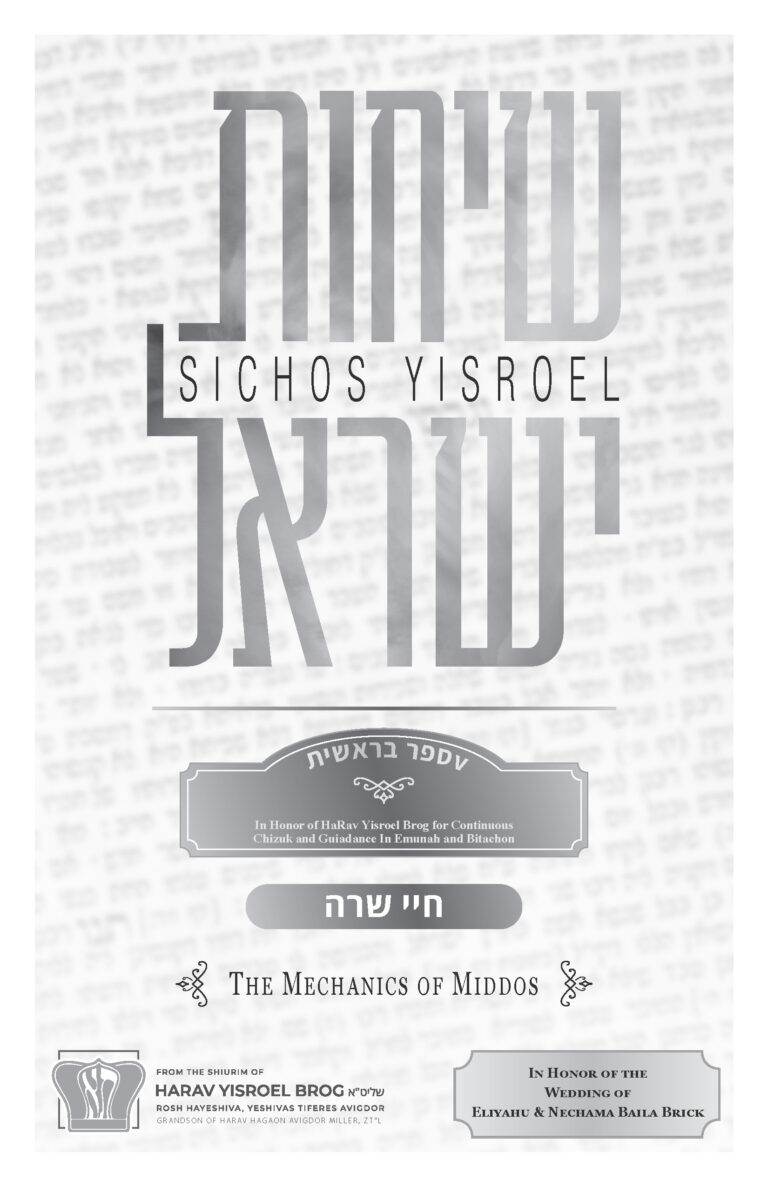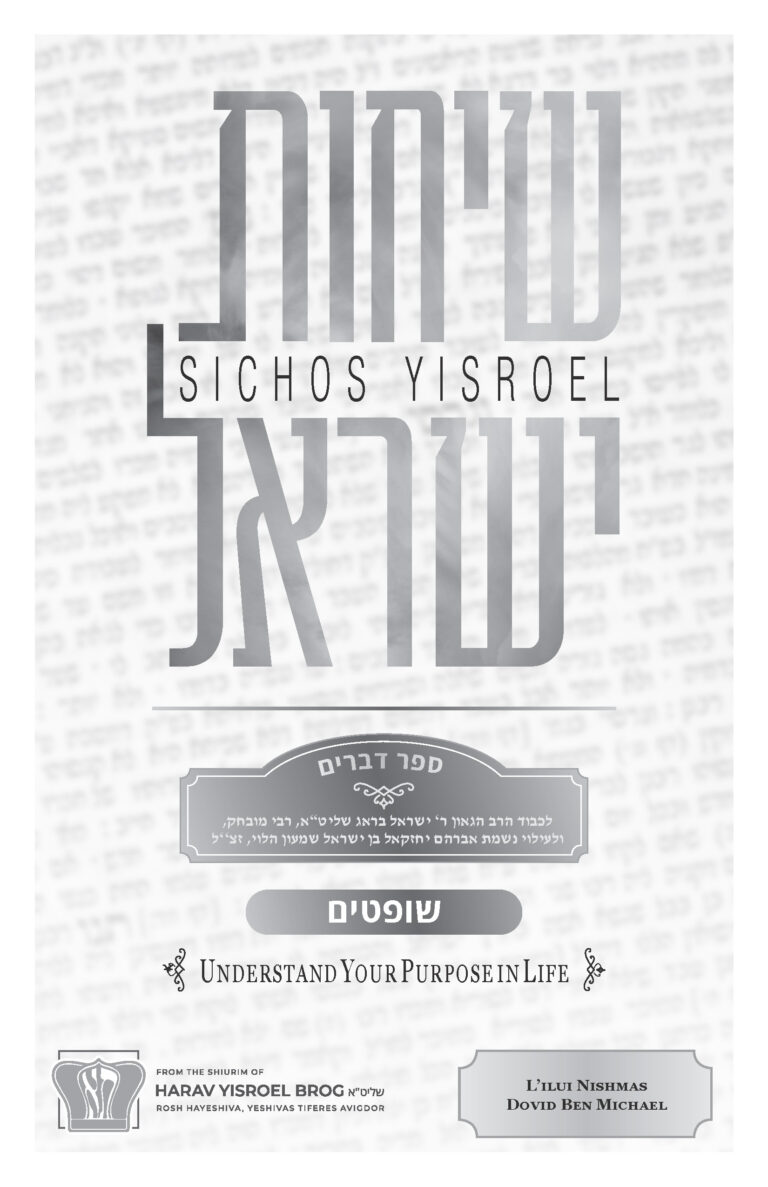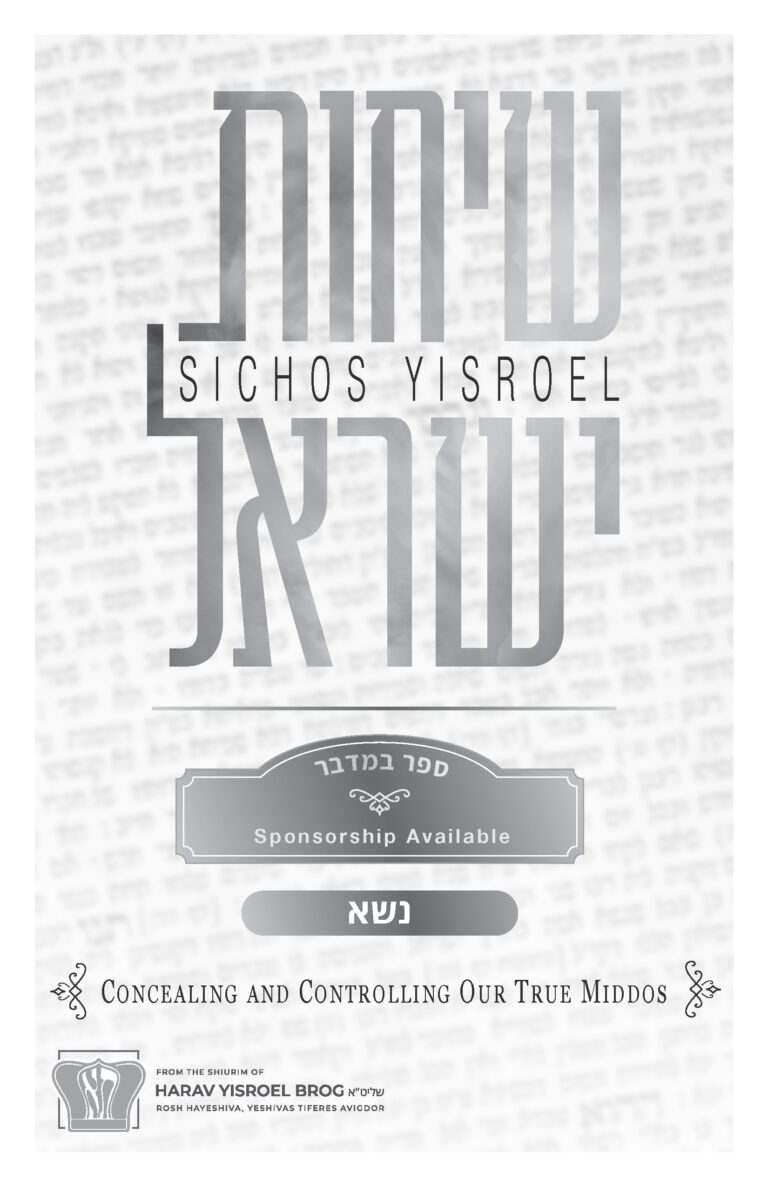Vayakhel 5782 – Not Getting Angry on Shabbos
Join Our Aniyei Eretz Yisroel Purim Campaign Lomdei Torah M’toch Chadchak
Visit YTATorah.org
Shiur presented in 5778

Join Our Aniyei Eretz Yisroel Purim Campaign Lomdei Torah M’toch Chadchak
Visit YTATorah.org
Shiur presented in 5778

“These are the children of Yitzchak ben Avraham. Avraham fathered Yitzchak” (Bereishis 25:19). The question is, after the Torah mentions that Yitzchak was ben Avraham, why does it need to say after that Avraham fathered Yitzchak? If I tell you Yitzchak is ben Avraham, most geniuses, even simple folks like me and you, could figure out that Avraham fathered Yitzchak.

Tonight’s subject be’eizer Hashem,is to figure out the purpose of our lives in this world, for each one of us. One of the most fundamental principles of Judaism is that there is no creature that exists, that was created for no reason, or by chance. Every single one of the creatures in the universe has a specific purpose. That’s a mind-boggling concept. Every blade of grass, every ant, and every fly has a purpose in Hashem’s creation. That’s principle number one.

Today’s subject, to some people, is going to be a sensitive one. Most subjects that are sensitive to people are usually subjects in which people are challenged by the topic. For example, if we’ll speak about the importance of giving tzedakah and you’re a person who is not into tzedakah, and tzedakah is not your strong point, that’s going to be a sensitive subject for you.

n parshas Chukas, a famous episode took place where Klal Yisrael began to complain to Hashem and complain to Moshe. They were saying all kinds of nasty things. “Why did you take us out of Mitzrayim? What kind of food are you giving us?” And Hashem got upset and sent them a “present.” It wasn’t the kind of present that we’re looking forward to.

The parshah begins by saying “these are the cheshbonos, the accountings, of the donations for the Mishkan”. The word “pekudei” means counting. When you have a lot of different things to take into account and keep track of, that’s called pekudei.

We’re coming down from the mountain. Shavuos is over. You know, there is one maalah of Yom Tov over Shabbos. The Ramban says that the neshamah yeseirah of Shabbos leaves by Motzei Shabbos. By Yom Tov, it doesn’t leave. But lema’aseh, after matan Torah, you know what Hashem said? שׁוּבוּ לָכֶם לְאָהֳלֵיכֶם, “Go back to your tents” (Devarim 5:27). Go home. Do you know what Hashem wanted us to do? To take the Torah we just learned, take the Torah we were just mekabel, and bring it home.